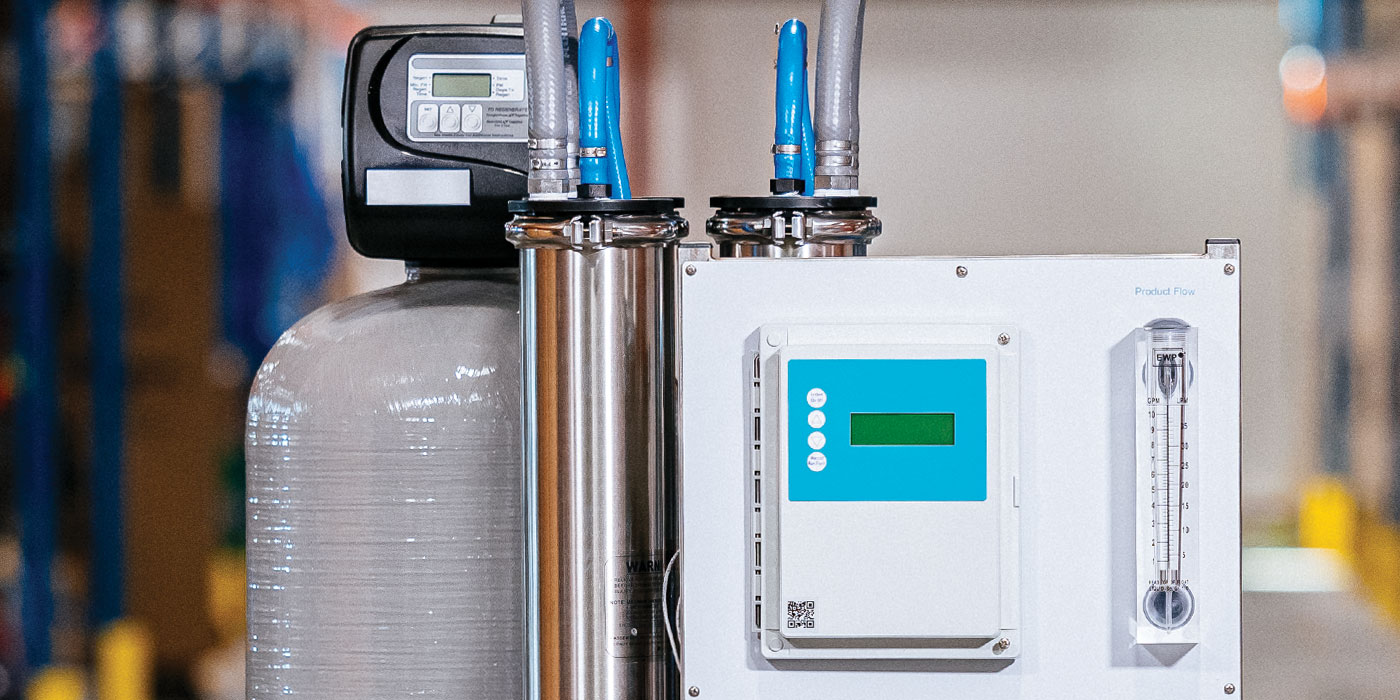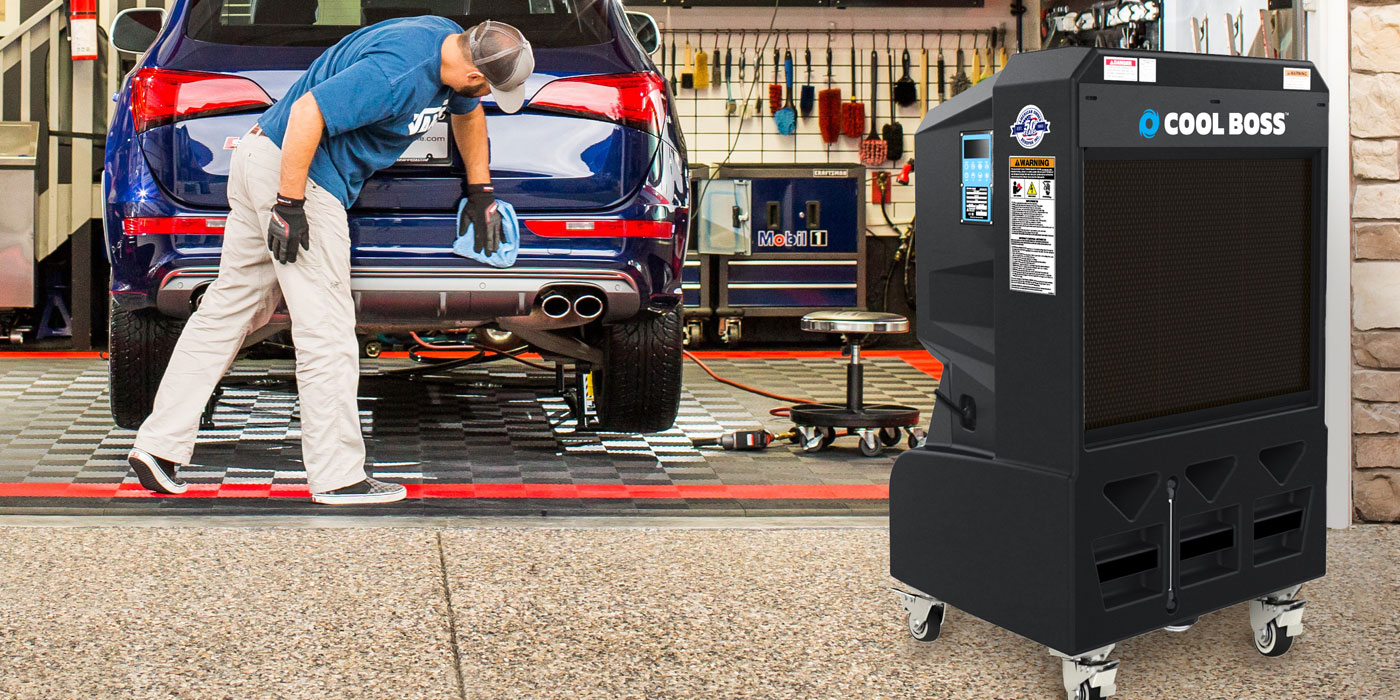From beginning to end, the opening of any carwash requires thousands of little steps. Purchasing, site planning, approvals and permits — if every step is taken into account, the completion of any operational carwash can be considered a minor miracle. Yet, when the tunnel or bay is poised for operation and most of the heavy lifting is finished, an owner must shift his or her thinking from completion to competition. Savvy owners will ask, “What steps can I take to make potential customers choose my wash over the other guy’s?” Often, the answer can be summed up in one word: Marketing.
The forgotten step
For many floundering carwashes and chains, marketing can be thought of as the forgotten final step. Frequently, these owners have moved into business without a firm and complete marketing plan. Darry Hall is president of BigInnovations.com, a marketing and business growth consulting firm. When it comes to companies that operate without a solid marketing plan, Hall recalled the words of founding father Benjamin Franklin: “By failing to plan, you are planning to fail.”
“In my opinion, flying by the seat of your pants is a poor or naive way to run a business,” Hall said. “It may seem like it works — it can seem that way for a number of years — but … a plan-less company is a company wasting money, resources and time. It can feel like it’s working, but it could be working better.”
In Hall’s experience, businesses that operate without a solid marketing plan frequently bump up against a revenue ceiling. Hall noted that many times the culprit is an owner that will not let the business grow beyond what he or she can personally manage. In this instance, the development and implementation of a marketing plan should be delegated to a team. Doing so allows the collective ability and brainpower of the team to effectively accelerate a business’ growth.
“Develop a written plan where you can inject your guidance for new growth in broad strokes, then leave the nitty gritty of pulling it off to that great team you have assembled,” Hall stated. Putting the project in a team’s hands gives the employees room to flex their creative muscles while allowing the company to grow beyond the limits of an operator’s individual strengths.
Changes and updates are also important for businesses with older marketing plans. Hall said marketing channels that made sense just five to 10 years ago may not be the best ways to market now. Owners cannot cling to what worked with customers in the past. Instead, they should evolve their marketing plans after reacquainting themselves with the front-line of the business — the area where the buyers actually meet the seller.
An industry example
One car care operation that has successfully utilized a team and evolved its marketing offerings over the years is the Autobell Car Wash chain. Started in 1969, Autobell currently operates 65 carwashes in four states. These locations are spread out in both large and small markets throughout the Southeast.
Autobell’s CEO, Chuck Howard Jr., said it is vital for a carwash or chain to have a comprehensive marketing plan in place. A full plan will incorporate numerous components that can be adapted to various marketplaces, economic climates and competitive environments yet still retain the company’s brand image and core messaging.
“Our marketing efforts are vital to the success of Autobell Car Wash, and we have several very important marketing targets with whom we must communicate on a regular basis,” Howard said. “It’s imperative that our messages are dispersed consistently, concisely and clearly in a positive manner.”
Howard stated that Autobell’s marketing targets are:
- Current and future customers;
- Current and potential employees;
- The carwash industry;
- Municipal officials; and
- The media.
Autobell’s marketing targets a wide audience for a number of reasons. First, the carwash industry is included in Autobell’s plans because the company feels the car care market can benefit from good marketing examples and positive publicity. Also, it is important for Autobell to market to municipal officials in zoning, planning and utility, especially in areas where the company owns or wants to develop carwashes. Finally, the media is important because it is a vehicle to communicate with many of the company’s marketing targets.
Technology, change and channels
Over the past few years, how much has the marketing landscape really changed? “Thanks to technology, retail marketing has changed in every way imaginable and will continue to do so at meteoric pace,” Bob Klein, chief strategy officer for Blue Chip Marketing Worldwide, said. The Internet and huge leaps forward in mobile technology, led by the iPhone, have changed the way shoppers behave all along the path to purchase — now shoppers are in control like never before.
Some traditional marketing channels that were frequently called upon by businesses have shrunk while online offerings have developed. “We’ve witnessed an increase in grassroots marketing via more concentration in public relations and social media/online efforts, and a decrease in advertising,” Howard said. “That apparently was a national trend during the recent economic instability.”
Hall noticed the same changes. While washes still use traditional print, TV and radio advertisements, successful washes today are taking advantage of e-marketing channels, such as email marketing, e-advertising and website marketing. Many are also leveraging strategic partnerships with relevant affiliates, and looking at social media sites as a modern referral tool.
Successful use of these e-marketing options can help businesses:
- Thoroughly and continually listen to customers, competitors and those closest to customers;
- Reach a target market without wasting a budget on prospects beyond a company’s reach;
- Provide relevant messaging to better connect with each prospect;
- Make perceived value far exceed the actual cost charged, maximizing the concept of “bargain” without leaning on margin-killing price cuts; and
- Relentlessly mitigate obstacles for prospects to do business with a company.
In fact, Hall referred to TV, radio and some forms of print marketing as “buckshot methods.” He explained that they fire a message at big numbers and hope it gets heard by those who might actually act on the message. In comparison, retail e-marketing makes it possible to narrowly target a specific type of customer.
Utilizing direct response marketing, a carwash can share a message with only the people in a target area, those that are close enough to actually utilize a wash’s services. Owners can even fine tune the targeting details down to people who drive or to car owners versus truck owners. “A few years ago, one print ad had to fit all,” Hall recalled. “Now e-ads can be catered to each person. We call this one-to-one marketing.”
With e-advertising, an owner can link ads, messaging and imagery to appeal to specific customers, showing relevant ads that better resonate with them. Different images of smiling people can be added so that recipients will identify with their own race, sex, family status, for instance, in the advertisement. It is as if each ad is customized just for the specific customer. This is important because relevance is a powerful marketing hook, according to Hall.
Social media and service
Today, social media sites like Facebook, Twitter, Pinterest and Instagram are frequently brought up when shop talk turns to advertising. Their use is widespread around the globe, and many companies are looking at these sites as possible marketing channels in today’s changing landscape. Yet, many owners wonder how these sites can be used effectively.
“If you don’t have a Facebook page, start one today,” Klein said. “But putting the page up is only the start. You need to create a meaningful, regular dialogue with your customers [then] reward them for being your friend.”
Klein noted that many carwash owners’ regular objection to using Facebook and other social media is, “I don’t have time to do this stuff.” Again, the recommendation is to delegate. “You have employees with down-time all during the day that can learn to post and own your social media conversation,” Klein said. “Put them to work instead of paying them to text their friends and chat on their own Facebook page. You’ll benefit and so will they.”
But, users of social media should beware. It appears that these sites have helped create an even greater focus on delivering outstanding service, Hall stated. A few years ago, a retail operation could sacrifice service quality customer-to-customer and feel little — if any — pain with other customers and prospects. At worst, a business might lose a few other customers. Now that many people are savvy with social media, this is no longer the case.
“Disappoint a number of customers who feel socially empowered and they may throw more e-punches at your brand reputation,” Hall warned. “With Internet-connected smartphones and tablets in hundreds of millions of hands, there isn’t even time for emotions from a bad experience at your wash to dissipate; they’ll just post how your business did them wrong. And hot emotions can yield venom-loaded posts.” Even after a customer’s disappointment fades, the posts can remain active for many years.
Reactive marketing, getting on social media sites and trying to defend a business, is a poor substitute for proactively heading off these posts, according to Hall. But how does an owner prevent angry reviews? First, put in every effort to turn unhappy customers into happy customers. Don’t let customers leave a carwash angry or unhappy. Next, be sharp about jumping on situations before they get a chance to escalate, and go out of your way to delight the unhappy customer and try to save the business.
“One of the wisest experts on our team always offers an oldie but goodie: ‘Make every customer feel like they are your only customer,’” Hall said. “A few years ago, that was just good business policy. Now it’s ‘or else.’”
Marketing success case study
The Autobell carwash chain currently incorporates a number of channels in their marketing efforts. Some of the more traditional media include television, cable and radio advertising. Howard said the company uses specific but very limited print and outdoor advertising as well. On the Internet, Autobell markets with email promotions, customer surveys to their VIP electronic database, Facebook, Twitter and a newly revamped website. Marketing employees also monitor and maintain Autobell’s image and communication via various consumer websites such as Yelp, Google, Citysearch, etc.
While those efforts may be maximum effort for many companies, Autobell also utilizes various public relations, publicity and promotional events to help spread the word about the company’s positive activities. These programs include Autobell’s Charity Car Wash Program, employee scholarships, environmental efforts and special customer offers. Howard noted two successful examples of the special offers.
First, Autobell had a 43rd anniversary sale in May 2012 that offered a special of three full-service carwashes for $33. The wash locations sold several thousand of these packs in three-and-a-half weeks. Also, since 2004, Autobell has published and sold a custom cartoon/coupon calendar each year that contains 24 coupons (two per month) worth over $75. Last year, the chain sold 20,000 calendars at $6.95 each in just four weeks. “That put nearly a half million bounce-back coupons in our markets, and we get an outstanding redemption rate ranging anywhere from 2 to 40 percent depending on the coupon offer,” Howard said. Looking ahead, Autobell has already printed 26,000 of the popular calendars for 2013.
In addition, Autobell is involved at various levels with professional sports franchises in several markets. The chain has community relations coordinators that seek and implement community involvement and marketing/PR opportunities for specific stores as well. And on-site, Autobell continues to work on revamping in-store marketing via new collateral design and messaging to educate and inform the customer. The company also has begun a redesign of its public space. “Pretty much everything we do is meant to inform, serve and please our customers,” Howard revealed.
Not so successful
Still, Autobell’s exhaustive list includes just the marketing channels that the company currently uses. Over the years, Autobell has tried a wide array of promotional ideas. Howard explained, “We’ve been in business since 1969 and tried numerous strategies in our earlier years, including direct mail coupons, local broadcast celebrity endorsements, event and Little League sports sponsorships, Yellow Page ads and sponsorship of a NASCAR team.”
Considering every channel that the company has tried, surely there were a few marketing efforts that did not work for Autobell. “Marketing success for us is subjective, because even if the strategy doesn’t work the way we intended, we still learn and gain from the effort,” Howard said. Even so, he provided an example of a Valentine’s Day promotion that the chain offered only once. In hindsight, the offering had too many contingencies, and that made the setup too cumbersome and confusing for some customers and employees. Yet, management leaders at Autobell were able to learn some valuable lessons from the attempt.
Hall stated that carwash operators should not be scared of some failure when it comes to marketing. Even though the idea seems counter-intuitive at a glance, owners should embrace some failures in a plan. Often, they can be an effective gauge that reveals a business is being bold enough to discover the “meaty successes.”
“If every tactic in your marketing plan carries a burden of not being allowed to fail, you somewhat miss the point of good marketing,” Hall noted. “A big part of marketing involves trying new things in hopes of driving new results. If you can only try new things that can’t fail, results can be incremental at best.”
Taking new steps
Hall offered a few suggestions for kick starting new marketing ideas or plans. First, he recommended a survey of the local market. Surveys are an inexpensive way to find out if a carwash’s brand is well established in a set area. Other questions a survey can answer are: How strong is a wash’s reputation? What motivates people to use a specific carwash? Are current marketing channels succeeding or failing to accomplish objectives?
Operators should also aggressively watch their competitors. Make it a point to know everything new that the other carwashes are trying. Competitive analysis is a great marketing fundamental, but doing it well is not doing it once every few years. “And no, you don’t ‘do everything better’ than your competitors. They have talented people working hard every day trying their best to figure out how to take some share from your business,” Hall said.
If an owner believes his or her wash does everything better than the other guy’s, a business can get complacent about detecting the competition’s discoveries. This allows the competition to harvest a breakthrough in the short- and medium-term. “When you are really feeling the pain of their innovation, it is much too late to be engaging in competitive analysis. Be proactive and make it an ongoing part of your marketing model,” Hall recommended.
Similarly, it is important to identify the carwash proxies — the companies in the industry that an owner would most like to emulate, according to Hall. These will be bigger companies that best represent the dream of how an operator would like to see a business evolve. Watch them like a local competitor and pay attention to every new program they roll out. How are these businesses marketing? What are they doing now that the industry has not seen them do before? Look at their websites and marketing messages. Good intelligence gathering on the company an owner wants to become most like will basically lay out the changes needed to make a move in that direction.
Carwash operators can look outside the car care industry for ground-breaking marketing ideas as well. “Catching the new marketing ideas by the bigger players — wherever they are — gives you opportunity to be first in your area with them too,” Hall concluded.














